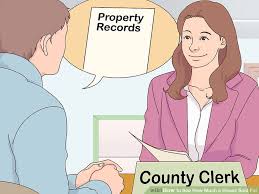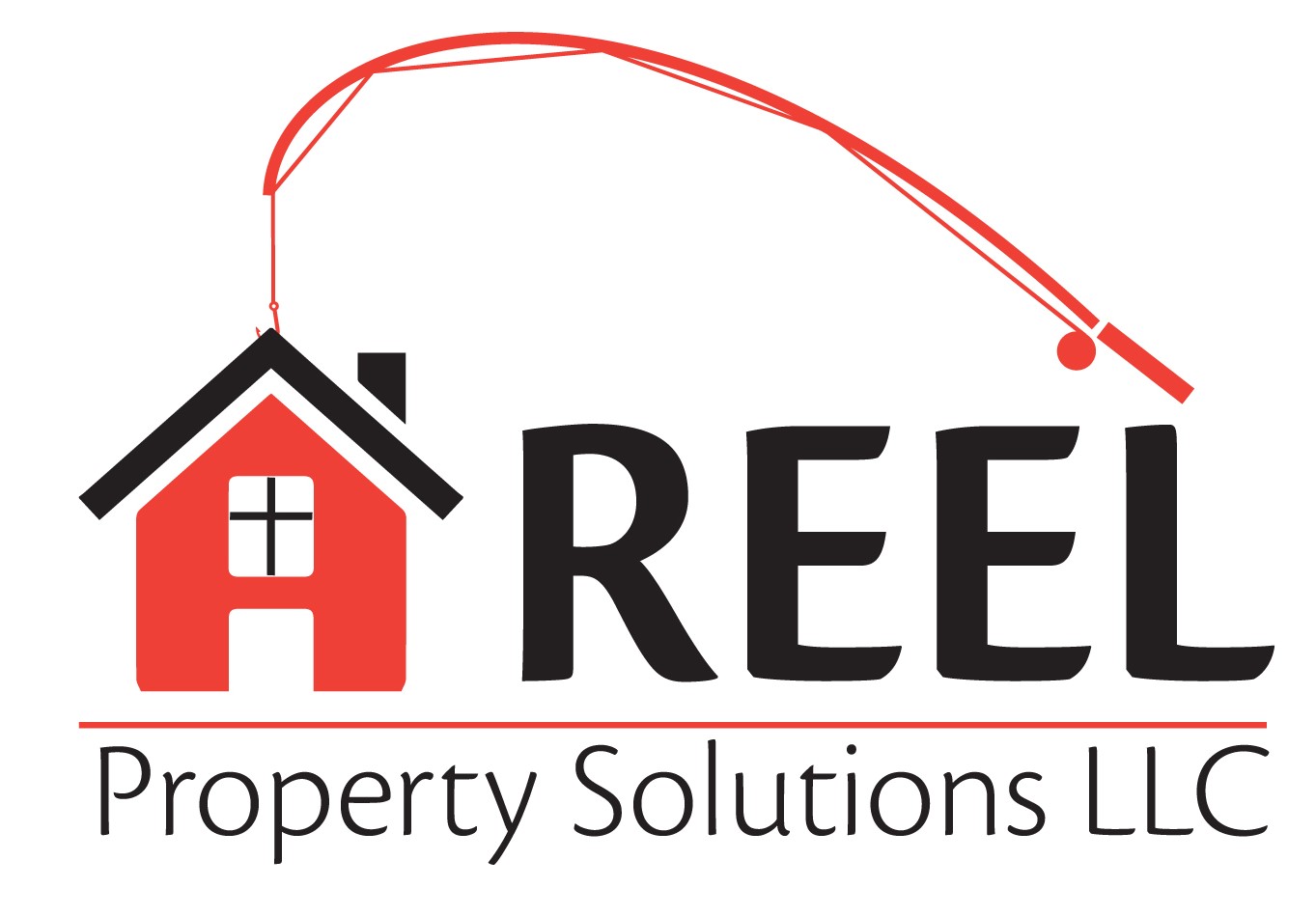Why do county public records exist?
 The age old question: Why do county public records exist? Buying and selling real estate is a multi-step process from selecting the location to putting a price tag on the property to negotiating the price to transferring the paperwork to the actual move. The local government is part of this process which then records the information which may or may not be county public records. Why are some states public verses other states not public? The question was topic of a poll on Alignable. Here’s some of the answers to the question: Why do county public records exist?:
The age old question: Why do county public records exist? Buying and selling real estate is a multi-step process from selecting the location to putting a price tag on the property to negotiating the price to transferring the paperwork to the actual move. The local government is part of this process which then records the information which may or may not be county public records. Why are some states public verses other states not public? The question was topic of a poll on Alignable. Here’s some of the answers to the question: Why do county public records exist?:
- Scott Moore from OMNE Partners in Nebraska states, “Just like all public records, similar to legal actions, criminal complaints, notices to public, etc… transactions involving real estate are a legal process and notices are given when transfers of real estate occur. Additionally, all information regarding properties can be obtained from your county assessor’s office. This includes taxes owed, how much it sold for and when, and who purchased and sold the property.”
- Otis Baker from RE/MAX Solutions – Realtor in New Jersey reiterates: “The tax assessor’s office holds a record of ownership for all the properties that are assessed for property taxes in the city or county of its jurisdiction. Members of the public are entitled to search information relating to tax rates, tax exemptions, property assessment value and tax liens free of charge.”
- Charles Alloway from LandQwest Commercial in Florida tells about the need to protect rights of property owners: “The recording of documents in public records that relate to the ownership of real property is done to protect the rights of property owners. Without having a deed recorded in public records anyone could challenge ownership of a particular parcel. Without recorded proof of ownership anyone could make a claim. That is why documents are recorded in a certain order at closings. Deeds are recorded before mortgages because ownership must be established before you can place/create a loan & mortgage on it. Without a system to record and establish private ownerships and rights (like easements) NO ONE would be able to defend their individual rights.”
- Cindy Crews from Marcus & Company Realty, LLC in Florida gives an answer based on the property history: “In several counties in Florida you can view an entire history on a piece of property from sales to liens. You can also find permits, tax information, and several other bits of information all online. I think this allows individuals to have a since of security when deciding to sell or buy.”
- Marion Proffitt from Marion Proffitt – ERA Prime Properties in California states: “In California, recorded documents including Deeds are public information. Our tax records are as well to allow homeowners, appraisers, and potential owners to have details in order to evaluate value; I do not know why the mortgage information is public, but only the original loan details show, not balances.”
- Michael Tiani Realtor from Coldwell Banker in Florida gives this insight: “The reason real estate records are public is to provide information on the tax assessment and value of their property. It allows tax payers to see and determine their taxes, and provides them access to what others pay in order for them to assess fairness.”
- Ines De La Cruz from Realtor, RE/MAX Connection in New Jersey has a differing perspective: “Just like in cars. You need to have a way to know about a property as much as you can.”
- Trevor English from Trevor English Naples Real Estate in Florida: “Need the information to get an accurate market value on homes”
- Liz Scheffler from Century 21 Affiliated Maki in Illinois has an answer based on another historical thought: “My guess is it started in the days of the land grab and titles/deeds were recorded an made public record so everyone would know who owned what land. It has evolved from there. To protect the actual owner from being known, you can put the property in a Land Trust and it will only reflect the Trust not the person on title.”
- Byron Anfinson from Coldwell Banker Burnet in Minnesota has a point of view based on the government: “Nobody owns real estate. The land belongs to the US Government. Property owners only have “title” to the land, hence it must be public record.”
- Richard Haworth from Coldwell Banker Residential Brokerage in Arizona has a point of view to help maintain privacy: “For one thing, it prevents the multiple sales of the same property to different buyers by charlatans looking to make a quick buck. Also, without mortgage companies being able to search (public) records on a piece of property, they would be very reluctant to lend mortgage money to a buyer as the risk of the loan would go up. If someone wants to conceal the purchase of a property, they can use a “straw man” approach and buy through an intermediary – often used by companies like Disney to aggregate acreage for their theme parks.and for other large purchases of land.”
- Betty Steinbacher from Century 21 Betty Steinbacher Real Estate in Pennsylvania says: “Because the public needs to know what liens could be placed on the property for unsatisfied financial obligations.”
- Jim Stephenson from Coldwell Banker Thompson Real Estate, Brokerage in Ontario, Canada shared this: “Active listings for of course selling purposes and to determine market value. Sold and cancelled listings made available by realtors for again market value purposes”
- Randy Willson from Promised land realty, llc in Michigan says: “they have to be able to tell if there are other liens on it. or you don’t get title insurance. and you may buy something that already is encumbered if no information available.. also. it is records. sales and lien releases. foreclosures. etc..”
- Larry Hudson from RE/MAX Leading Edge, Real Estate Associate Broker in Maryland starts the answer w
 ith a question: “Why not? Think about this, if they were not public record, how would you approve any loan or sale. Who would know who owns what and how much one owns. Property rights are very sacred in America, public record is putting the world on notice that one owns the property. Lenders use public notice to let the world know that the owner has already put property up against an existing loan. Lastly, in order to sell a property and give good and merchantable title the buyer wants to know all about the property, public record.”
ith a question: “Why not? Think about this, if they were not public record, how would you approve any loan or sale. Who would know who owns what and how much one owns. Property rights are very sacred in America, public record is putting the world on notice that one owns the property. Lenders use public notice to let the world know that the owner has already put property up against an existing loan. Lastly, in order to sell a property and give good and merchantable title the buyer wants to know all about the property, public record.”
- Sharon Boyet from Apple Creek Realty, LLC in Missouri states: “Information regarding the sale of a home is public knowledge because it is used for various reasons, such as: verification of mortgages, checking legal descriptions, taxes, ownership, value, etc. This also allows real estate agents to compare area homes value when attempting to ascertain a fair market value for a clients home.”
Some states are NOT county public records for these reasons:
- Kelly Exline from Kelly Sells in Idaho: “The information is not public in Idaho. We are a non-disclosure state.”

- Jeff Jannsen from Keller Williams in Texas: “I don’t know why, but we are not allowed to share that info. W anyone besides the homeowner.”
With all these various reasons as to why county public records exist, Reel Property Solutions, LLC also utilizes public records to view if any liens are against the property, determine market value, and what the neighborhood looks like. A property with liens, such as tax liens, can still be purchased, but more steps are required to fulfill the sale. If a distressed property is in a neighborhood valued at $200,000, when renovations are complete, and the property is resold, the property should be in the $200,000 range so not to “out-do” the neighborhood standard. The term “Neighborhood Standard” is used to decide how much- or how little- to renovate a distressed property. For example, if other houses in the neighborhood has asphalt shingles, then to renovate the distressed property with a metal roof would be under the neighborhood standard. On the other hand, if the neighborhood standard is to have a gravel driveway, but the distressed property is renovated with a newly poured concrete driveway, then the distressed property could appear to be overly renovated.
When Reel Property Solutions, LLC does property tours, most times the county public records have been pulled and assessed to establish the fairest cash offer price. This is to benefit the seller. Likewise, when the next buyer comes along, Reel Property Solutions, LLC has concrete reasoning to show why the sale price was determined.
When gathering facts and figures about the property to present to potential money lenders, one of the pieces of information most times required is the tax assessor’s card. This way the money lender can see how the funds are justified. Fortune Builders has a blueprint to follow when plugging in numbers for the purchase price, renovation cost, and resale price. This is extremely helpful along with the countless network of other investors who help as needed. Reel Property Solutions, LLC has an abundant support system to help YOU with a smooth, easy transfer of ownership. This is why county public records are vital for everyone!
As always, for any questions about selling a distressed property, would you like to be a money lender with a huge return rate, or just wanting to clarify questions regarding county public records, contact Reel Property Solutions, LLC at 507-218-8788 or info@reelpropertysolutionsllc.com. Our motto is CATCH A WINNER!
